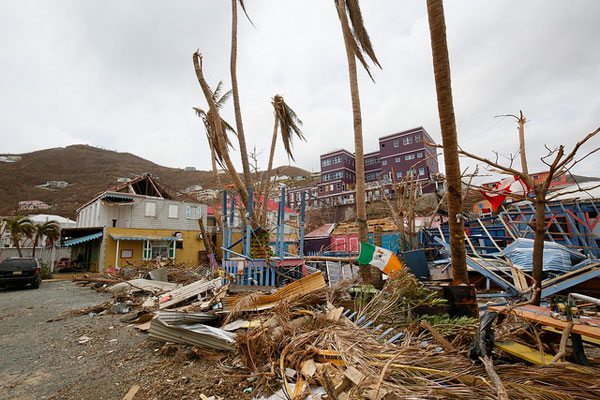
March 21, 2018; Pasquines
The resources needed to rebuild communities following a natural disaster, both in terms of time, money, and labor, can be extensive. To date, the Federal Emergency Management Agency still holds a presence in many hard-hit localities of the past year, including Puerto Rico, Florida, and Texas. Catastrophes of this scale can’t be remedied by government alone. Indeed, at last year’s Voluntary Organization Partner Day held by the federal agency, FEMA Administrator Brock Long said, “Voluntary agencies provide critical support and resources in the days following a disaster, from food and shelter, to mental health and crisis counseling. Simply put, we could not do it without them.” As Sarah McMichael writes in the Puerto Rican news site Pasquines,
To address short term needs, nonprofits often help by providing up-to-date information, assist FEMA when filling out forms for those with limited literacy and language barriers, aid in the distribution of donations such as clothing and food, and monitor vulnerable members of society.
So, when nonprofits in the US Virgin Islands learned that mandated government funding would be withheld in ongoing recovery efforts, they stood up.
Sign up for our free newsletters
Subscribe to NPQ's newsletters to have our top stories delivered directly to your inbox.
By signing up, you agree to our privacy policy and terms of use, and to receive messages from NPQ and our partners.
Recently, by means of the Office of Management and Budget (OMB), the Government of the Virgin Islands announced that it could no longer provide law-mandated funding to nonprofits in the territory, and that organizations such as the Women’s Coalition, Men’s Coalition, and the Virgin Islands Partners for Recovery, would be left out of budget considerations.
In partnership with Senator Nereida Rivera-O’Reilly, chair of the Senate Committee on Health, Hospitals and Human Services, numerous nonprofit organizations testified to the critical nature of their services and declared them essential to continued community rebuilding. Indeed, later that day, Governor Kenneth Mapp directed the funds be released.
As we’ve warned before, eternal vigilance on the part of nonprofits is required when partnering with government. But when the sectors collaborate and hold each other accountable, our communities reap the benefits they deserve.—Jeannie Fox













